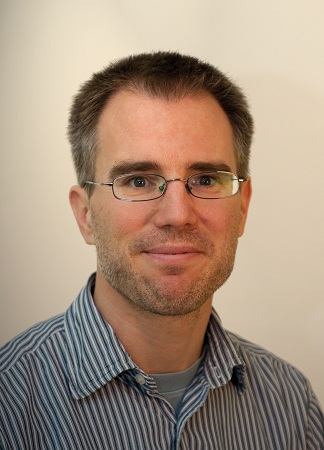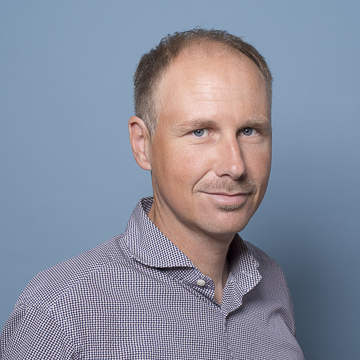Program and Keynote speakers
Program
The program in PDF format can be downloaded on the link below:
Thursday May 11th, 2023
- 9h15 – 9h45 : Welcome and registration
- 9h45 – 9h50 : Opening
- 9h50 – 10h50 : Invited talk: Millimeter-wave joint communication and sensing (Joerg Widmer, IMDEA Networks)
- 10h50 – 11h10 : Coffee break
- 11h10 – 12h30 : Session 1 : Radar (Session Chair: Jérôme Louveaux (UCLouvain))
- Environment Mapping with 28 GHz Beam Steering Transceivers Using the SAGE Algorithm – Preliminary Results, Nigus Yirga (ULB), Claude Oestges (UCLouvain), François Quitin (ULB)
- Multistatic Fusion of Beamforming Feedbacks and Passive Wi-Fi Radar for AoD-based Localization, Martin Willame (UCLouvain), Laurent Storrer, Hasan Can Yildirim, François Horlin (ULB), Jérôme Louveaux (UCLouvain)
- Group Counting Using Micro-Doppler Signatures From a 77GHz FMCW Radar: A CNN Approach, Dejvi Cakoni, Laurent Storrer, Philippe De Doncker, François Horlin (ULB)
- New EM-Based Radar Propagation Model, François De Saint Moulin, Christophe Craeye, Luc Vandendorpe, Claude Oestges (UCLouvain)
- 12h30 – 14h00 : Lunch break and Poster Session P1
- 14h00 – 15h20 : Session 2 : Communications (Session Chair: Jos H. Weber (TU Delft))
- Coded beam searching for bi-directional optical wireless communication system, Lev Azarkh, Jean-Paul M. G. Linnartz (TU/e and Signify)
- The infuence of Bivariate Empirical Mode Decomposition parameters on AI-based Automatic Modulation Recognition accuracy, Alexander Gros, Véronique Moeyaert, Patrice Mégret (UMONS)
- Enhancing Signal Classification on Embedded Devices with Spectrum Painting, Bingyang Li (University of Chinese Academy of Sciences), Qing Wang (TU Delft)
- RF Energy Harvester Circuits Supplied with Multi-sine Signals, Jarne Van Mulders, Chesney Buyle, Lieven De Strycker, Liesbet Van der Perre (KU Leuven)
- 15h20 – 15h40 : Coffee Break
- 15h40 – 16h40 : WIC general assembly
- 18h00 – 19h00: Social event « Le Chat déambule »
- 19h30 : Gala dinner
Friday May 12th, 2023
- 9h50 – 10h50 : Invited talk: Introduction to Graph Signal Processing (Geert Leus, TU Delft)
- 10h50 – 11h10 : Coffee break
- 11h10 – 12h30 : Session 3 : Signal Processing (Session Chair: Alexander Bertrand (KU Leuven))
- Variance of Likelihood of Data, Fetze Pijlman, Jean-Paul M. G. Linnartz (Signify and TU/e)
- A Semi-supervised Interactive Algorithm for Change Point Detection, Zhenxiang Cao, Nick Seeuws, Maarten De Vos, Alexander Bertrand (KU Leuven)
- Detect-and-Avoid for multi-agent systems, Ellen Riemens, Raj Thilak Rajan (TU Delft)
- Identifying Temporal Correlations Between Natural One-Shot Videos and EEG Signals, Yuanyuan Yao, Axel Stebner, Tinne Tuytelaars, Simon Geirnaert, Alexander Bertrand (KU Leuven)
- 12h30 – 14h00 : Lunch break and Poster Session P2
- 14h00 – 15h20 : Session 4 : Machine Learning (Session Chair: Raj Thilak Rajan (TU Delft))
- Deep-learning based Image Retrieval from Videos, Sinian Li, Doruk Barokas Profeta, Justin Dauwels (TU Delft)
- Barrett’s Neoplasia Detection using a minimal Integer-based Neural Network for Embedded Systems Integration, Tim G.W. Boers, Carolus H.J. Kusters (TU/e), Kiki N. Fockens, Jelmer B. Jukema, Martijn B. Jong, Jeroen de Groof (Amsterdam University Medical Center), Jacques J. Bergman, Fons van der Sommen, Peter H.N de With (TU/e)
- Linear dscriminant analysis with unlabelled data, Nicolas Heintz, Tom Francart, Alexander Bertrand (KU Leuven)
- Machine learning algorithm to predict cardiac output based on arterial pressure measurements, Alan Hamo, Shuoyan Zhao, Niki Ottenhof, Jan-Wiebe H Korstanje, Justin Dauwels (TU Delft)
- 15h20 – 15h40 : Coffee Break
- 15h40: Awards and closing session
List of posters for Poster Session P1
- Lower bound on the maximal size of deletion/insertion and substitution correcting codes, Ward J. P. Spee, Jos H. Weber (TU Delft)
- Performance Comparison of the Fractional Fourier Transform and Matched Filtering for Delay-Doppler Estimation with a Wideband LFM Preamble, Ids Van der Werf, Richard C. Hendriks (TU Delft), Richard Heusdens (TU Delft and Netherlands Defence Academy)
- QoS Satisfaction Game for Random Access Resource Management, Guillaume Thiran, Ivan Stupia, Luc Vandendorpe (UCLouvain)
- MmWave Array Configuration Impact on Head-Mounted Display Performance, Alexander Marinšek (KU Leuven), X. Cai (Lund University), L. De Strycker (KU Leuven), F. Tufvesson (Lund University), L. Van der Perre (KU Leuven)
- Prediction of Postinduction Hypotension by Machine Learning, Shuoyan Zhao, Alan Hamo, Niki Ottenhof, Jan-Wiebe H Korstanje, Justin Dauwels (TU Delft)
- Trajectory Smoothing for Distributed Formation Control of Multiagent Systems, Zhonggang Li, Raj Thilak Rajan (TU Delft)
- Demonstrating CSMA-NDA for Control Area Networks with Off-the-Shelf components, François Quitin, Michel Osée (ULB)
List of posters for Poster Session P2
- Acoustic transfer function estimation exploiting spectral correlations, Giovanni Bologni, Richard Heusdens, Richard C. Hendriks (TU Delft)
- Automated Calibration of CCTV Cameras, Giacomo D’Amicantonio, Egor Bondarau, Peter H.N. De With (TU/e)
- Efficient Content-Based Image Retrieval of Historical Video Resources using Compact Deep Learning Network and Local Descriptors, Doruk Barokas Profeta, Sinian Li, Justin Dauwels (TU Delft), Andrea Nanetti (Nanyang Technological University)
- A Configurable RAN Model to Evaluate and Reduce its Power Consumption and Carbon Footprint, Louis Golard, David Bol, Jérôme Louveaux (UCLouvain)
- Sensor Selection using the Two-Target Cramer-Rao Bound for Angle of Arrival Estimation, Costas A. Kokke (TU Delft), Mario Coutiño, Laura Anitori (Netherlands Organisation for Applied Scientific Research,), Richard Heusdens (Netherlands Defence Academy), Geert Leus (TU Delft)
- Drive-Line Extraction from Aerial Images, Julien A. Vijverberg, Bart J. Beers (Cyclomedia Technology B.V.), Egor Bondarev, Peter H. N. de With (TU/e)
- Range and Phase Offset Estimation of Multiple Transponder-equipped Aviation Vehicles, Mostafa Mohammadkarimi, Geert Leus, Raj Thilak Rajan (TU Delft)
Keynote Speakers

Joerg Widmer is Research Professor and Research Director of IMDEA Networks in Madrid, Spain. Before, he held positions at DOCOMO Euro-Labs in Munich, Germany and EPFL, Switzerland. He was a visiting researcher at the International Computer Science Institute in Berkeley, USA, University College London, UK, and TU Darmstadt, Germany. His research focuses on wireless networks, ranging from extremely high frequency millimeter-wave communication and MAC layer design to mobile network architectures. Joerg Widmer authored more than 200 conference and journal papers and three IETF RFCs, and holds 14 patents. He was awarded an ERC consolidator grant, the Friedrich Wilhelm Bessel Research Award of the Alexander von Humboldt Foundation, a Mercator Fellowship of the German Research Foundation, a Spanish Ramon y Cajal grant, as well as nine best paper awards. He is an IEEE Fellow and Distinguished Member of the ACM.
Millimeter-Wave Joint Communication and Sensing (May 11th, 2023)
The high bandwidth available at millimeter-wave frequencies allows for very high data rates, and at the same time enables highly accurate localization and environment sensing. This keynote highlights the practical design aspects of localization and sensing systems, and in particular the challenges of joint communication and sensing. We show how to achieved decimeter-level location accuracy with simple commercial millimeter-wave off-the-shelf communication devices and how sub-6 GHz information can help to further improve the reliability of the system. We also discuss how to use communication hardware to perform zero-cost monitoring of human movement and activities in indoor spaces (rather than using dedicated radars). To this end, access points can be retrofitted to perform radar-like extraction of the tiny micro-Doppler effects caused by the human motion. We then use this to achieve fine-grained sensing applications such as simultaneous activity recognition and person identification of multiple human subjects. We will focus on the practical implementation aspects, testbed design and experimental results with such systems.

Geert Leus received the M.Sc. and Ph.D. degree in Electrical Engineering from the KU Leuven, Belgium, in June 1996 and May 2000, respectively. Geert Leus is now a Full Professor at the Faculty of Electrical Engineering, Mathematics and Computer Science of the Delft University of Technology, The Netherlands. His research interests are in the broad area of signal processing, with a specific focus on wireless communications, array processing, sensor networks, and graph signal processing. Geert Leus received the 2021 EURASIP Individual Technical Achievement Award, a 2005 IEEE Signal Processing Society Best Paper Award, and a 2002 IEEE Signal Processing Society Young Author Best Paper Award. He is a Fellow of the IEEE and a Fellow of EURASIP. Geert Leus was a Member-at-Large of the Board of Governors of the IEEE Signal Processing Society, the Chair of the IEEE Signal Processing for Communications and Networking Technical Committee, the Chair of the EURASIP Technical Area Committee on Signal Processing for Multisensor Systems, a Member of the IEEE Sensor Array and Multichannel Technical Committee, a Member of the IEEE Big Data Special Interest Group, a Member of the EURASIP Signal Processing for Communications and Networking Special Area Team, and the Editor in Chief of the EURASIP Journal on Advances in Signal Processing. He was also on the Editorial Boards of the IEEE Transactions on Signal Processing, the IEEE Transactions on Wireless Communications, the IEEE Signal Processing Letters, and the EURASIP Journal on Advances in Signal Processing. Currently, he is a Member of the IEEE Signal Processing Theory and Methods Technical Committee, an Associate Editor of Foundations and Trends in Signal Processing, and the Editor in Chief of EURASIP Signal Processing.
Introduction to Graph Signal Processing (May 12th, 2023)
Although processing and analyzing audio, images and video is still of great importance in current society, more and more data is originating from networks with an irregular structure, e.g., social networks, brain networks, sensor networks, and communications networks to name a few. To handle such signals, graph signal processing has recently been coined as a proper tool set. In graph signal processing the irregular structure of the network is captured by means of a graph, and the data is viewed as a signal on top of this graph, i.e., a graph signal. Graph signal processing extends concepts and tools from classical signal processing to the field of graph signals, e.g., the Fourier transform, filtering, sampling, stationarity, etc. In this talk, we introduce the field of graph signal processing and mainly focus on the graph Fourier transform and graph filters. They find applications in image denoising, network data interpolation, signal and link prediction, learning of graph signals and building recommender systems. More recently, connections to distributed optimization as well as neural networks have been established. These last two applications rely heavily on core signal processing techniques such as iterative inversion algorithms and linear time-invariant filters. Graph filters extend these concepts to graphs, leading to key developments in distributed optimization and neural networks.
